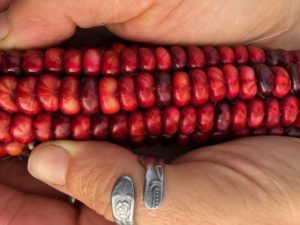
OSA and the National Center for Appropriate Technology (NCAT) will co-host a three-part listening session series focused on seed. The listening sessions aim to gather input from farmers, gardeners, seed growers, seed companies, plant breeders, and other food and farming community members to discuss the areas of intellectual property rights (IPR), excluded methods in organic production, and GMO contamination.
Registration for the first listening session, Seed Commons & Ownership: A Listening Session on Intellectual Property Rights (IPR), is now open and will take place Thurs., November 19 from 10 – 11:30 am Mountain Time / 12:00 – 1:30 pm Eastern Time. Registration for the second and third listening session will open in the comings weeks. For now, save the dates for:
- A Listening Session on Excluded Methods in Organic Production
December 16, 2020 from 11:00 am – 12:30 pm Mountain Time / 1:00 – 2:30 pm Eastern Time - The Integrity of Food Begins with Seed: A Listening Session on GMO Contamination
January 19, 2021 from 11:00 am – 12:30 pm Mountain Time / 1:00 – 2:30 pm Eastern Time
What participants can expect in the first listening session:
Organic Seed Alliance (OSA), Vermont Law School’s Center for Agriculture and Food Systems, and the National Center for Appropriate Technology (NCAT) will host a listening session to hear from farmers, seed growers, seed companies, plant breeders, and other food and farming stakeholders about issues they face with intellectual property rights (IPR) on seed. IPR decisions affect all growers, regardless of how they farm or garden (organic or otherwise) and have very real ethical and cultural implications for community seed systems. Listening session hosts will invite participants to answer the following questions: How does IPR impact your farming operation, gardening pursuits, and plant breeding or research? What questions do you have about IPR, and what resources do you need? What resources do you already have? Are there opportunities for improving how IPR is used in the seed system? Input gathered will directly inform future educational events and policy recommendations in 2021.

